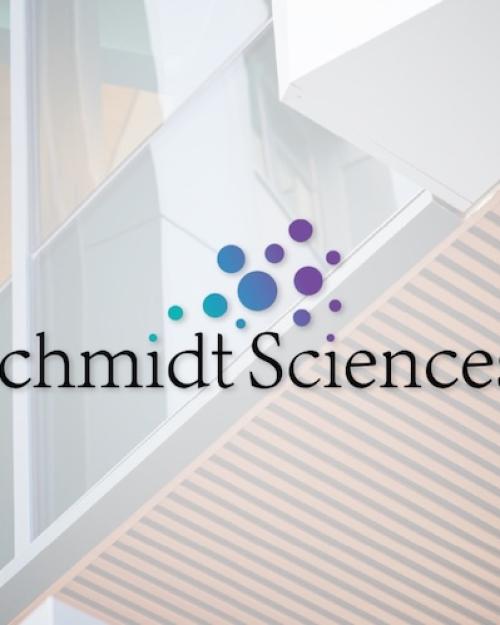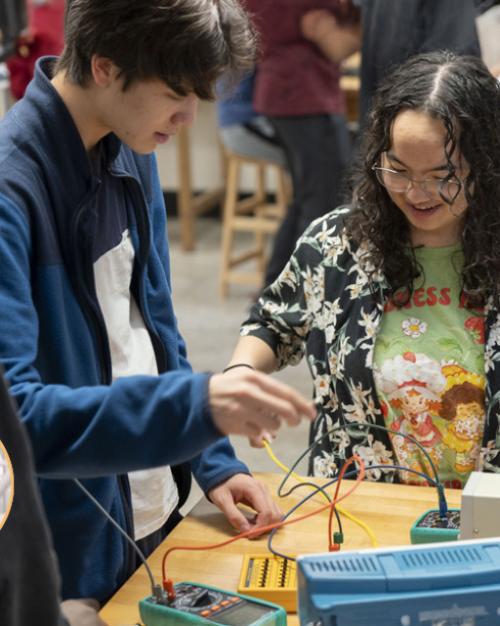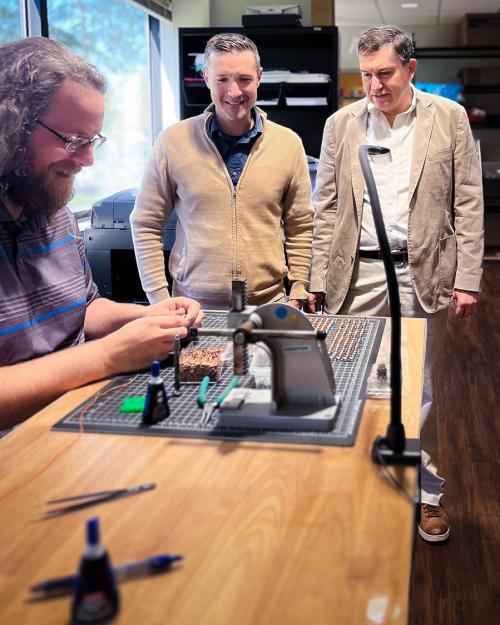More than 20 years ago, physicist Rob Thorne and his research group were developing a set of new tools to enable cutting-edge research on the structure of biomolecules.
Knowing these tools were sought after by scientists around the world, Thorne created a company, MiTeGen, which just celebrated 20 years in business and its 25th patent.
The company offers technologies and services for scientists using crystallography, cryogenic electron microscopy and other techniques for probing small molecule and biomolecular structure and function.
Along with a standard set of products, MiTeGen also designs customized systems for labs tackling everything from cell biology, histology and clinical diagnostics to entomology, archaeology and art restoration.
“Back in 2003, I knew that my collaborators were searching for a better way for getting very tiny protein crystals into the X-ray machine, so I sketched up a design and had my grad students make it,” said Thorne, a professor and Stephen H. Weiss Presidential Fellow in the physics department in the College of Arts & Sciences. “We filed a patent, presented it at a conference and I had a Japanese manufacturer immediately reach out to see if we planned to sell this. I knew then that we had something the community needed.”
After a couple of unsuccessful attempts to license the technology, Thorne decided he should become an entrepreneur himself. Staff at the Center for Technology Licensing (then the Cornell Center for Technology, Enterprise and Commercialization) encouraged him. Zach Shulman ’87 J.D. ’90, director of Entrepreneurship at Cornell, helped him file the paperwork to start a business and he found a small office at Langmuir Lab in the Cornell Business & Technology Park near Tompkins County Airport.
“We started to sell our first product, MicroMounts, but I realized I couldn’t build this company around one tiny thing,” Thorne said. He talked to colleagues to understand their challenges and other scientists reached out to him for help. Then his team innovated new products to add to their line. “We’re constantly trying to expand our core competencies,” Thorne said.
At this point, MiTeGen’s online site is popular with scientists outfitting their labs, as it offers more than 5,000 MiTeGen and distributed products.
“When I started the business, I didn’t have money, a business plan or any expertise in running a company,” said Thorne, who today is chairman and chief technology officer. “All of our growth in the beginning was from Small Business Innovation Research (SBIR) and Small Business Technology Transfer (STTR) grants.”
At the same time as his company grows, Thorne said he’s remained focused on his Cornell students and their experiences. He spends time thinking about what they need to learn, obstacles to that learning and solutions to improve outcomes, he said.
He encourages entrepreneurial thinking in his students – helping them recognize problems in the lab and innovate to find a better process. “The values and approaches I draw on when teaching large introductory courses have directly informed how MiTeGen addresses the needs of its customers,” Thorne said.
Thorne’s research lab at Cornell focused on studying the structure and function of biomolecules and on obstacles to successful cryopreservation of small biological samples. He appreciates its impact, but he says the work with his company is meaningful in a larger way.
“I’m helping to advance science in ways I could never do in my Cornell group,” he said.
During the early days of his company, Thorne said he received lots of assistance from the Cornell Nanofabrication Facility, the Cornell Center for Materials Research and the Cornell High-Energy Synchrotron Source, as well as machine shop staff members in Clark Hall.
He and his team are working on new products to allow structures of biomolecules to be determined much more rapidly, accurately and efficiently. They are also working on technologies for assisted reproduction of domestic, research, and endangered species (with Cornell life science collaborators), and on related technologies for assisted human reproduction (with a reproductive health company.).
Some of the company’s technology is used in developing COVID vaccines, other devices are being used by archeologists and forensic scientists, and one product has flown on SpaceX rockets to the International Space Station as part of a research project with drug company Eli Lilly.
“It’s incredibly enriching,” Thorne said of his company’s work. “It’s improved the quality of my Cornell teaching. They’re both about delivering the best possible services and products through continual innovation.”





